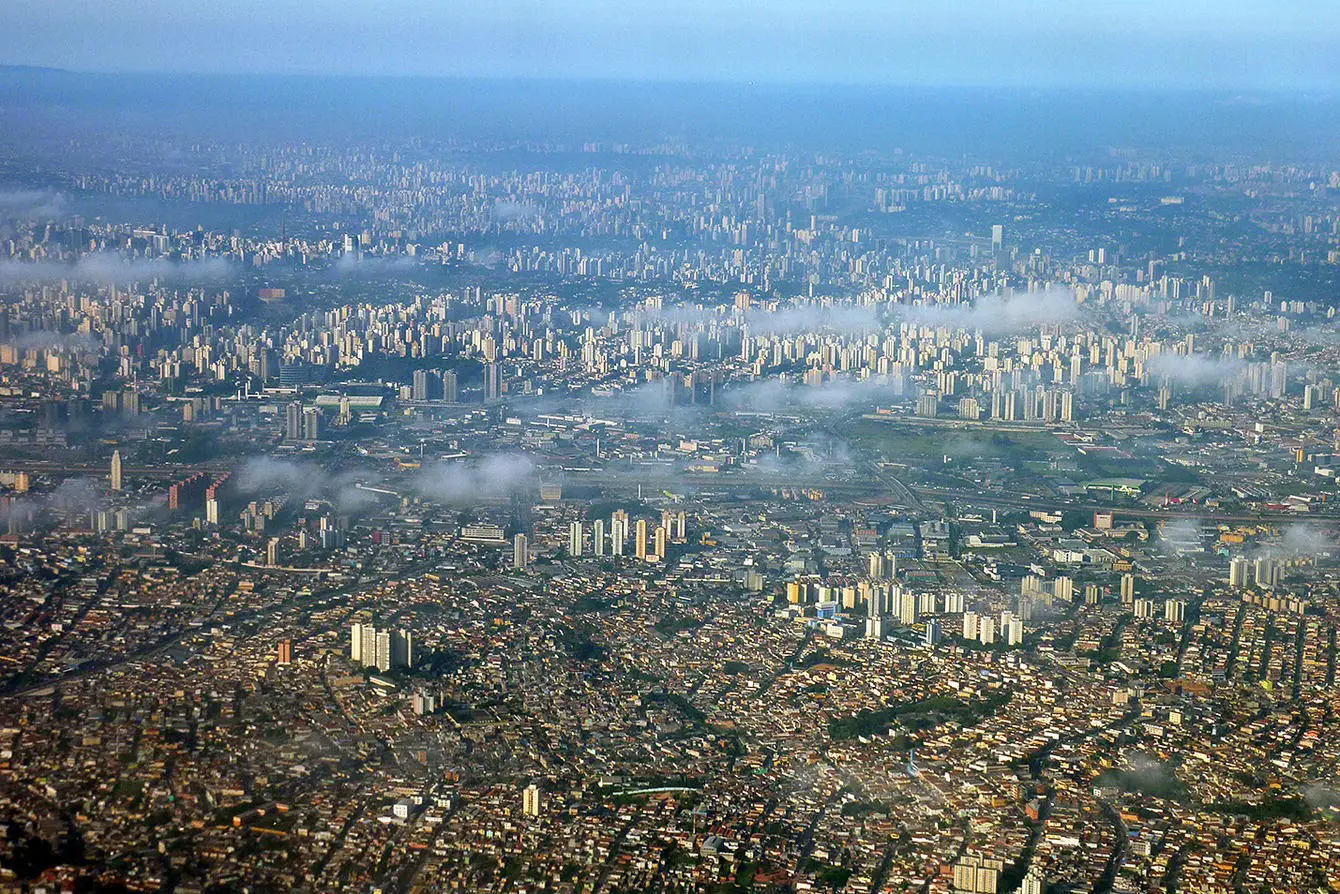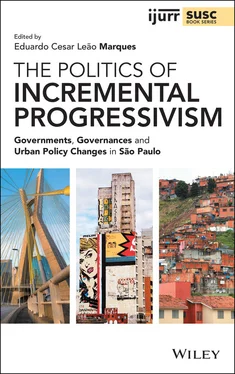Series Editors’ Preface
IJURR Studies in Urban and Social Change Book Series
The IJURR Studies in Urban and Social Change Book Series shares IJURR’s commitments to critical, global, and politically relevant analyses of our urban worlds. Books in this series bring forward innovative theoretical approaches and present rigorous empirical work, deepening understandings of urbanization processes, but also advancing critical insights in support of political action and change. The Book Series Editors appreciate the theoretically eclectic nature of the field of urban studies. It is a strength that we embrace and encourage. The Editors are particularly interested in the following issues:
Comparative urbanism
Diversity, difference and neighborhood change
Environmental sustainability
Financialization and gentrification
Governance and politics
International migration
Inequalities
Urban and environmental movements
The series is explicitly interdisciplinary; the Editors judge books by their contribution to the field of critical urban studies rather than according to disciplinary origin. We are committed to publishing studies with themes and formats that reflect the many different voices and practices in the field of urban studies. Proposals may be submitted to Editor in Chief, Walter Nicholls ( wnicholl@uci.edu), and further information about the series can be found at www.ijurr.org.
Walter Nicholls
Manuel Aalbers
Talja Blokland
Dorothee Brantz
Patrick Le Galès
Jenny Robinson
This book is a product of the environments of the Center for Metropolitan Studies (CEM) and the Department of Political Science (DCP) of the University of São Paulo. My first acknowledgment, therefore, goes to the colleagues of both institutions who have made this research venture possible. I thank especially Renata Bichir, Marta Arretche, Gabriel Feltran and Adrián Gurza Lavalle, not only for many concrete suggestions and comments, but above all for producing and maintaining an open, positive, and substantive academic environment. I also thank the young researchers who have not been included in the project of this volume, but who participated in the broader research project – “Política do urbano” – and contributed to its discussions, including especially Guilherme Minarelli, Marília Lessa, Mariana Silveira, Gabriela Almeida, Vinícius Pinto. We are also thankful to Alex Fisberg and Marília Paduan, who kindly allowed the use of some of their photographs to illustrate the book.
A second but equally important recognition goes to the São Paulo Research Foundation – Fapesp. Its generous funding has been present through several phases of the book, from supporting CEM itself to the research period at the University of California Berkeley when the final writing of this volume was completed. This book would have been impossible outside CEM's interdisciplinary environment and without Fapesp's crucial support.
In 2018, I wrote a significantly different version of this book in Portuguese, published by Editora Unesp in association with CEM. That publication pursued quite different goals associated with the local, Brazilian research agenda. The book that the reader is now holding represents a wholly reorganized and rewritten version, targeted to international debates from both political science and urban studies. The production of this analytic dislocation was made possible by a sabbatical at the University of California Berkeley in 2019 with Fapesp support. The environments of the Department of Political Science and of Berkeley's libraries and research centers were essential to producing this volume. Personally, I thank Professors Chris Ansell and Alison Post who not only made my academic sojourn possible but also made generous and precise comments to draft versions of the book. I also thank other colleagues, especially Ruth Collier and the participants of the Latin American Cities' group, with whom I interacted during that stay and who commented or contributed to the book.
Central parts of the book were also discussed during 2019 in seminars at Brown University, the Bay Area Comparative Urban Politics Workshop, the Comparative Politics Seminar at Berkeley, and the Bartlett School of Planning at University College London. I especially thank Professor Patrick Heller, the organizers of the IJURR Public Lecture in London and of the other events for the invitations, debates, and suggestions that have enriched the book.
This book is part of a broader comparative effort about the governance and governments of large metropolises in both the Global South and North including Paris, London, Mexico City, Milan, and São Paulo. On several occasions, I have discussed the arguments of the book and its chapters with other members of this comparative network. A great and sincere acknowledgment, therefore, goes to colleagues and friends from this network, including Patrick Le Galès, Claire Colomb, Alberta Andreotti, Mike Raco, Vicente Ugalde, Tommaso Vitalle, and Charlotte Halpern. Parts of the book and its arguments were matured in discussions promoted by the network in meetings of the Research Committee 21 of the International Sociological Association (RC21 – ISA) in Urbino, Mexico City, Leeds, Toronto, and Delhi, as well as at CEM in São Paulo and at Sciences Po in Paris under Patrick Le Galès' leadership. Additionally, Claire Colomb made invaluable suggestions during a research visit to São Paulo. This book would have been impossible to write or much weaker intellectually, were it not for our profitable (and fun) partnership and dialogue.
Finally, I am indebted to the editors of the IJURR SUSC book series, Jennifer Robinson and especially Walter Nicholls, as well as several anonymous reviewers of the manuscript. Their particularly important observations and criticisms helped to bring focus, clarity and precision to the book.
Eduardo Cesar Leão Marques
Eduardo Cesar Leão Marques

Chensiyuan, https://commons.wikimedia.org/wiki/File:1_aerial_photo_sao_paulo_brazil.JPG. CC BY SA‐4.0,3.0,2.5,2.0,1.0
This book analyses government and public policies in São Paulo, one of the largest and most complex cities in the world. We are interested in understanding how this city is governed, what kinds of policies and services its governments construct and deliver, and, more importantly, under what conditions they produce policies to reduce its striking social and urban inequalities. In more general terms, what explains the emergence and production of redistributive change in a vast Southern metropolis like São Paulo?
As Ugalde and Le Galès (2017) discuss at length, large cities have usually been considered ungovernable, or almost, even in cases known for their robust policies and excellent average urban conditions, such as New York (Yates 1977), Boston and San Francisco (Ferman 1985), London (Gordon and Travers 2010) and European metropolises (Lefebvre 2010). Authors have highlighted deficits in the political authority and coordination capacity of city governments, advocating institutional reforms that could provide them with stronger powers. Interestingly enough, the excessive power of mayors was at the heart of political machine critiques in the United States. Transferring their power to councils and managers was the goal of urban reform in the early 1900s (Stewart 1950).
In large metropolises of poor and middle‐income countries, the theme of ungovernability is not cyclical nor framed as a question of institutional reform, but prevalent and generalized. Ungovernability in these cases is supposedly due to their excessive sizes, inequalities, urban precarity, fragile political institutions, incapable bureaucracies, and corrupt and clientelist politicians, leading to precarious services, lack of planning, weak governments, policy failures and low policy innovation (Gilbert and Gugler 1982; Reddy and Rao 1985; Auyero 2000; Keefer 2005; Zunino 2006; Gilbert 2013; Oliveros 2016; Novaes 2018). For some, these challenges could be resolved through decentralization (Faguet and Pöschl 2015), increased participation (Goldfrank 2011), accepting these cities' informalities (Roy and Al Sayyad 2004), applying policy solutions produced elsewhere (Campbell 1997), or changing voting behaviors or political elites themselves (Gilbert 2013).
Читать дальше













